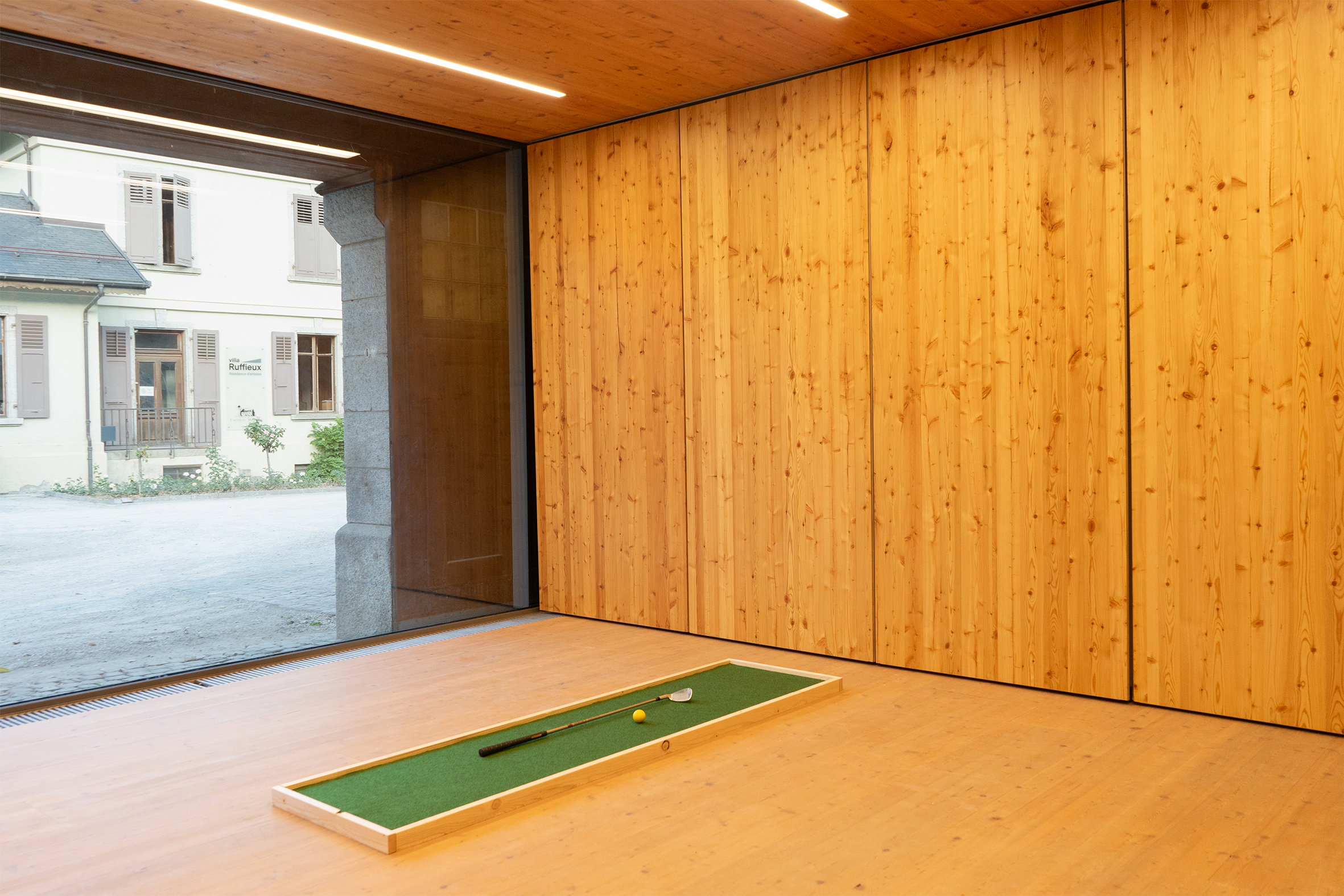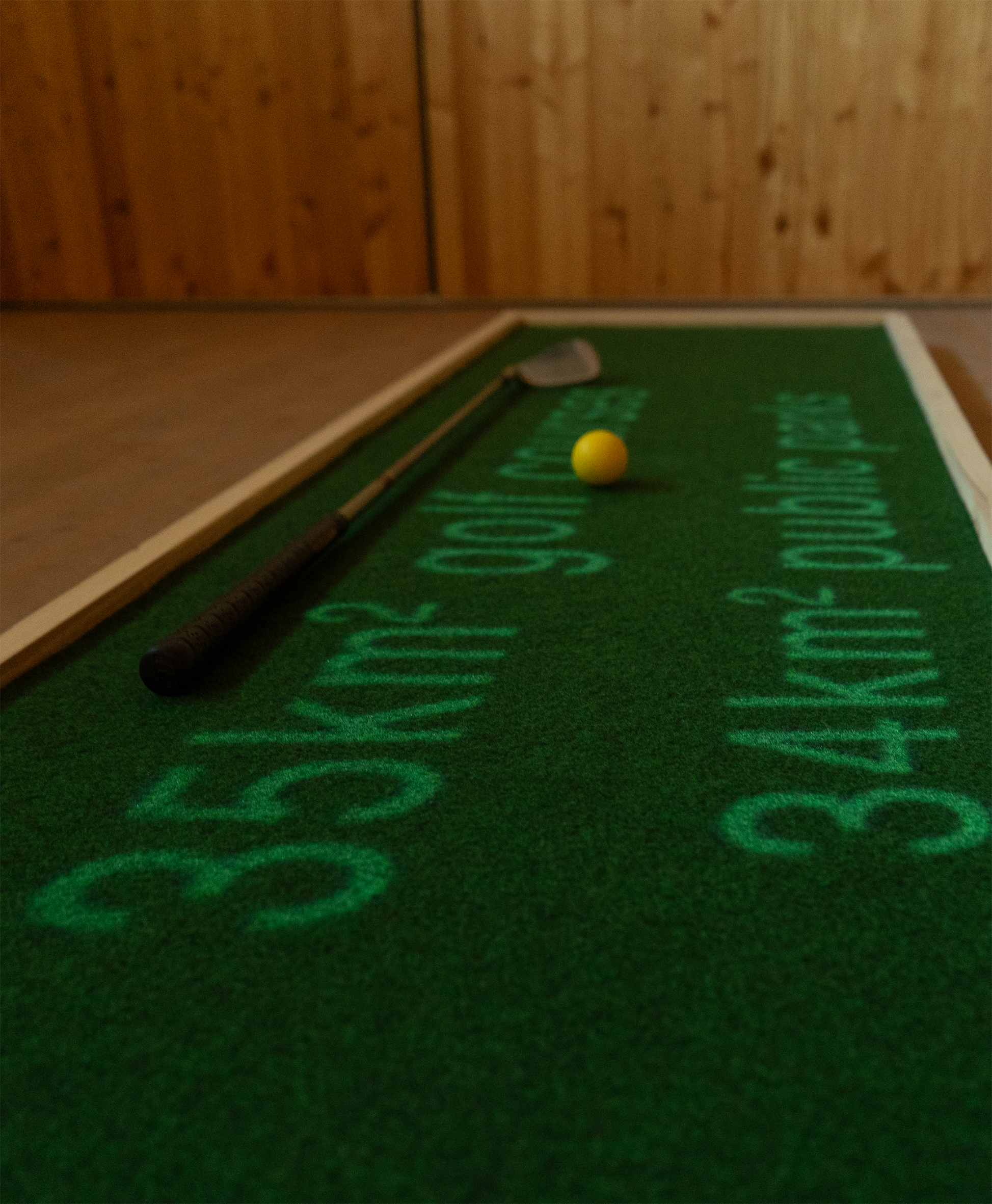

Raz la Motte, 2025
(mixed-media installation)
Exhibition view at Fondation Château Mercier, Sierre (CH), 2025
Raz la Motte is an installation that transforms leisure space into a site of critique. The work confronts the environmental injustice, destruction and social exclusivity embedded in luxury sports, using golf as a starting point to interrogate the broader culture of elite leisure.
Borrowing the slogan “Raz la Motte” (Fed up with the Golf Greens) graffitied by Swiss eco-activists on a golf course, the phrase, alongside with eco-data, are projected onto the artificial turf of a mini-golf course—a gesture that is both protest and parody.
Despite the vast green courses, golf is in practice not “green” at all. Beneath the "greens huppés" (posh greens) lies a violent logic of land occupation: public spaces reshaped into privatized space and ecosystems disrupted for the sake of an exclusive minority. In Switzerland, golf courses now occupy more land (35 km2) than public parks (34 km2), despite being used by only 2.3% of the population. Globally, the sport’s demands are shocking—9.5 billion liters of water per day (equal to humanity’s daily drinking water consumption), excessive pesticide use, and membership fees that gatekeep access while externalizing ecological costs onto the commons.
Yet golf is not an anomaly. It is part of a larger system of luxury leisure that prioritizes elite recreation over collective survival. Alpine skiing, another pillar of Switzerland’s high-end tourism, follows a similar extractive model: artificial snow production draining water reserves, deforestation of slopes, and carbon-intensive infrastructure serving a privileged few. The environmental consequences of these industries are deferred to the public through climate debt, destroyed biodiversity, and the loss of shared land.
By appropriating the aesthetics of leisure, Raz la Motte exposes the contradictions of these "green" sports. The installation becomes a mirror, reflecting not just the absurdity of golf’s ecological claims but also the broader hypocrisy of bourgeois environmentalism where sustainability is a marketing tool rather than a practice.
*Supported by the Culture Department of Valais, Switzerland (Service de la Culture de l'Etat du Valais)